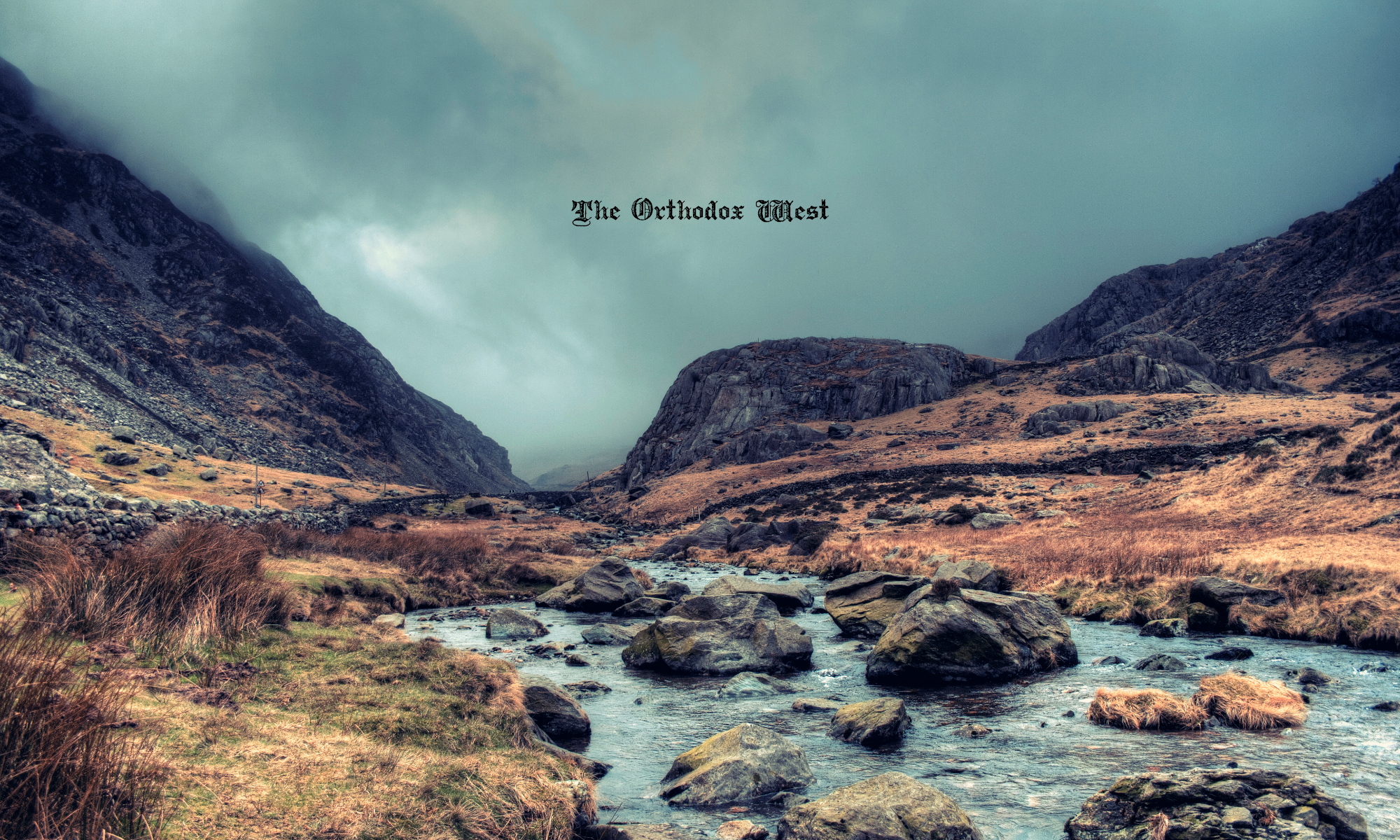Today we commemorate the full revelation of God as Holy Trinity. The Church has had to deal theologically with the paradox of unity and distinction within the Godhead early and often.
Over the first four centuries she literally transformed the language of the philosophers to speak of the mystery she was forced to defend. The Fathers, by specializing the meaning of ousia or essence, and hypostasis or person, sought to draw out the importance of affirming personhood within the shared substance of divinity.
The language they use is full of paradox, but necessarily so, since the very revelation of the Trinity is a cross for the ways of human thought. God is not to be comprehended: He cannot be. God is to be worshiped, and union with Him sought, hence the choice of the Epistle for today – John’s vision of the heavenly worship.
Most importantly for us, though, Trinitarian theology opens to us a new aspect of human reality: that of personhood as freedom in relation to nature. Personhood cannot be defined. One can only add up individuals, not persons. The person is always unique, each of us – born a unique person into this world – which is as true within the Trinity as for us. Personal uniqueness eludes every definition, and can only be evoked in its relation to others. Individuality is the death of true personhood. We become persons only in relation with others.
The same is true of love. It does not exist in isolation, but presumes a Thou to its I. At the very heart of the divine life, God knows Himself as I and Thou in a threefold way. We speak of the Father as eternally unbegotten, the Son as eternally begotten of the Father, and the Holy Spirit as eternally proceeding from the Father. But mathematics doesn’t work here. 1=3 and 3=1. The Father is personal, but not closed upon Himself. The Trinity is a pattern for humanity – part of the image and likeness in which we were created.
Christian theology does not know an abstract divinity: God cannot be conceived outside of the Three Persons. The Trinity is the initial mystery, the Holy of Holies of the divine reality, the very life of the hidden God. It cannot be grasped by humanity, only entered into by faith and love.
The Trinity seizes us and provokes praise in us. Outside of praise and adoration, outside of the personal relation of faith, our language, when speaking of the Trinity is always false. Hence “Holy, Holy, Holy, Lord God Almighty, which was, and is, and is to come” is the only appropriate response language can make. The Spirit leads us, through the Son, to the Father, where we discover the unity of the three, as the Father reveals Himself though the Son in the Spirit. As St. Basil affirmed, the Father is the source, the Son the manifestation, the Spirit that which manifests.
The Father is the source of love; the Son the revelation of that love; and the Spirit, love realized in us.
The divine Names themselves are the flow of the divine life whose source is the Father, shown to us by the Son and communicated to us by the Spirit.
Inseparable from the Trinity is the Incarnation. The germ of all Trinitarian theology is found in the beginning of St. John’s Gospel which we recite each Sunday. His three affirmations: “In the beginning was the Word…the Word was with God…the Word was God.” In the Incarnation, writes Paul Evdokimov, God transcended His transcendence.
After the fall, there was a chasm between the uncreated God and His creature. Adam was directly called to deification, to union with God, but after the Fall the obstacles of sin and death intervened to make the distance unbridgeable.
The Incarnation, Death, Resurrection and Ascension of the Son make the chasm bridgeable once again. We can once again receive grace, our nature healed in the Incarnation, and death is no longer the end to our life of spiritual advance. On the Cross, the Son allows death to embrace Him in order to consume it by contact with His divinity. Risen and Ascended, He introduces humanity into the Trinity Itself, and sends the Spirit at Pentecost, to begin a new period when human persons, indwelt and supported by the Holy Spirit may once again freely acquire union with God & live the life in Christ, the life of grace, the life of transformation.
In the Church, freedom and grace collaborate, as all who desire may respond in faith and love to the call of grace and pass through the portal of salvation and continue the journey to union with God.
The Holy Trinity is our life. The Church has fought to protect this revelation which is life itself, for anything less than the full revelation of the Holy Trinity leaves us bereft of the Way back to God which is the whole purpose of our being.
All of us have been baptized into the Holy Trinity and into the Body of Christ. We pray we will come to desire the fullness of this life in Christ and keep and grow in the grace of her baptism; and we stand in humble awe of the mystery which has saved us and offered us eternal life if we will turn from death and choose life. We worship and fall down before the One True God, the Father, the Son and the Holy Spirit.

